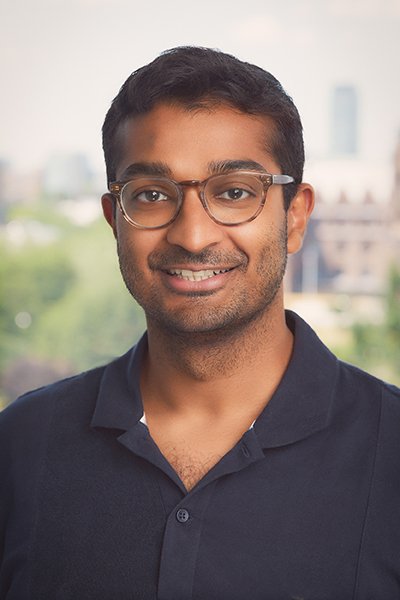The intersection of machine learning and health care is at the heart of Rahul G. Krishnan’s work as a computer scientist.
Assistant Professor Rahul G. Krishnan is the recipient of an Amazon Research Award to support his work in building machine learning into the health-care system.
With a research focus on computational medicine, the assistant professor at the University of Toronto’s Department of Computer Science and Department of Laboratory Medicine and Pathobiology wants to develop machine learning algorithms to create a ‘learning’ health-care system, where digitized clinical and biological data are used to improve clinical care and our understanding of human and disease biology.
In support of this work, Krishnan was recently announced as a recipient of an Amazon Research Award. He is one of 79 awardees from the fall 2022 cycle representing 54 universities in 14 countries.
“The current pipeline — from clinical hypothesis, to data extraction, experimentation and finally knowledge translation — is slow,” Krishnan notes.
“If we can link all of a patient’s interaction with every care system (hospitals, clinics, pharmacies), we can provide interfaces for patients in Canada to have a ready way for them and their clinicians to access their own records. This data also has value in building tools to help clinicians deliver care more effectively, as well as understand inefficiencies in the health-care system. Machine learning offers a gamut of opportunities to help accelerate this process — this is what I refer to as a learning health-care system,” he explains.
The award was based on a proposal Krishnan submitted with two goals in mind. The first is to build a biomedical large language model (LLM) using a dataset of clinical textbooks that he and his team collected and the second is to develop new ways to integrate data from multiple different modalities into predictive models of clinical outcomes.
“When I wrote the proposal, there was no ChatGPT and it’s clear to say that the first aim for the grant in many ways has been launched into the mainstream with the release of GPT-4 and Epic’s subsequent partnership with Microsoft to deploy such models in clinical settings,” says Krishnan.
Using open-source models such as those released by Meta, he plans to study the use of LLMs for tackling questions based on clinical text, understand biases the models may exhibit and develop algorithms to update these models with new clinical knowledge over time.
“By integrating such models with those that can answer predictive questions from images, we think there is a real opportunity to push the frontier of multi-modal machine learning in health care.”
In a recent interview with CTV News Toronto, Krishnan said that an important part of his work is considering the consequences of implementing AI in health care.
He pointed to Microsoft’s partnership with Epic as a move warranting further exploration, especially at a time when questions are being asked around the regulation of artificial intelligence.
“There are obviously consequences with this decision and so what we would like to do is study some of these consequences,” Krishnan told the outlet. “I think it’s a really important question to study because medicine is a field that is not static, what constitutes the standard of care is something that is dynamic and changes over time.”


